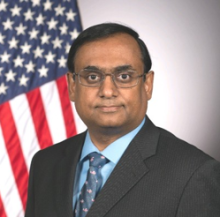MAE 298 SEMINAR: Reduced Order Models of Combustion Devices

Senior Research Aerospace Engineer
Combustion Devices Branch, AFRL, Edwards AFB, CA
Abstract: This talk will summarize efforts in model order reduction applied to practical problems involving turbulent combustion in rocket engines, where simulation time for full order models often tends to be unaffordable. The past two decades have witnessed many encouraging developments in parameterized reduced order models for highly nonlinear time-dependent partial differential equations (PDEs). This presentation will survey highlights from these methods, some insights into their success, current limitations and key applications related to combustion devices. Innovative approaches including nonlinear manifolds, adaptive enrichment of a basis function set, nonintrusive methods, modular domain decomposition and multi-fidelity and multi-parameter modeling will be outlined. The discussion will be from the perspective of recent Air Force supported research activities in these areas. It will conclude with a presentation of canonical problems which can identify challenge areas for the development of PDE-based as well as purely data-driven model reduction methods.
Bio: Ramakanth Munipalli received his B.Tech. from IIT Madras (India) and M.S. and Ph.D. from the University of Texas at Arlington, all in aerospace engineering. He is currently a senior aerospace research engineer at the U.S. Air Force Research Laboratory (Edwards AFB) where he is also a technical advisor for the combustion devices branch. Previously, he was a senior computational physicist at HyPerComp Inc. in Westlake Village, California. At AFRL, his work is mainly in the application of model reduction and data science techniques to high fidelity CFD in aerospace propulsion. At HyPerComp Inc., he has worked on computational magnetohydrodynamics, simulations of turbulent combustion and high order accurate solver development. His research was supported by DoE, DoD, and various private companies, and has included extensive collaboration with experts from the academia.
Share
Upcoming Events
-
MSE 298 Seminar: Mechano-Electrochemical Phenomena at Ceramic Electrolyte Interfaces
-
MAE 298 SEMINAR: Rapid Manufacturing and Assembly of High-Performance Thermoplastic Composites
-
CBE 298 Seminar: Beyond the Tailpipe - From the Science of Soot Formation to the Engineering of Carbon Nanomaterials
-
CEE Seminar: Pricing and Control in Emerging Mobility Systems
-
MSE 298 Seminar: Innovation In Materials Science - An Industrial R&D Perspective
